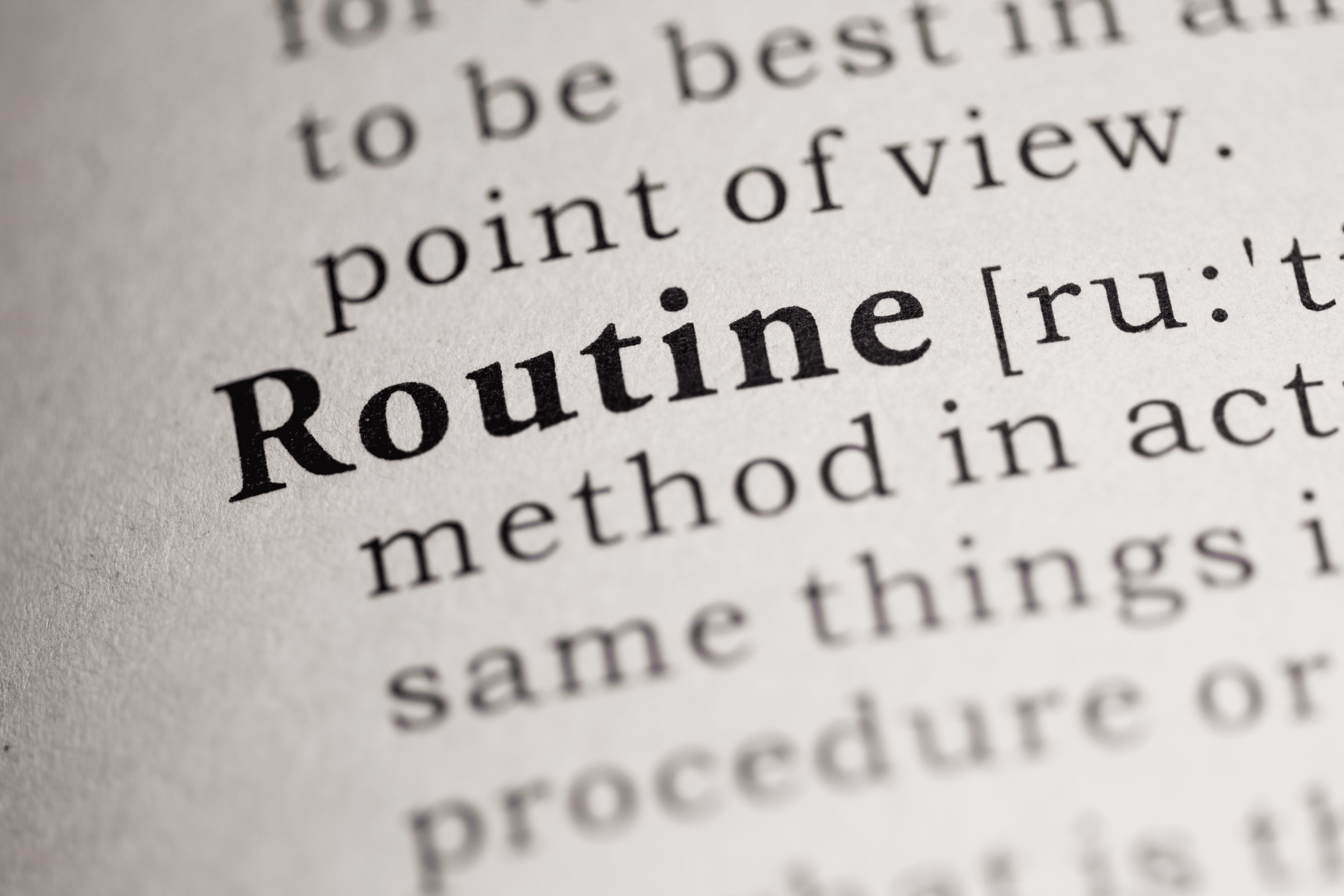
Creating a Morning Routine for Success
A well-structured morning routine can significantly enhance productivity, reduce stress, and improve overall well-being. Numerous studies have supported the positive impact of consistent morning rituals. For example, a meta-analysis published in the Journal of Occupational Health Psychology found that individuals with established morning routines reported higher levels of self-efficacy, job satisfaction, and life satisfaction.
Furthermore, research conducted at Harvard University has linked regular morning routines to improved cognitive function, including better memory and problem-solving skills. By establishing a consistent morning routine, you can create a foundation for a more productive and fulfilling day.
By establishing consistent habits and rituals, you can improve your focus, reduce stress, and increase your overall well-being. A morning routine can be personalized to fit your individual needs and preferences, allowing you to optimize your productivity and create a more positive mindset.
In this blog post, we will explore the benefits of creating a morning routine and provide practical tips to help you develop a customized plan. We will also discuss the importance of consistency, flexibility, and self-care in maintaining a successful morning routine.
The Benefits of a Morning Routine
A well-structured morning routine can offer numerous benefits, including:
- Increased Productivity
Starting your day with clear intentions and tasks helps you focus on what’s important. A morning routine eliminates decision fatigue, allowing you to move efficiently through your day and accomplish more. - Improved Mental Clarity
Engaging in mindful practices such as meditation, journaling, or planning your day helps clear mental clutter. This gives you a fresh and organized mindset to tackle challenges with more clarity and less stress. - Boosted Energy Levels
Physical activities like stretching, yoga, or a short workout in the morning can improve circulation and release endorphins, giving you a burst of energy to kickstart your day. - Reduced Stress
A predictable routine reduces last-minute rushing, helping you approach your day calmly. By setting aside time for yourself in the morning, you gain control over your schedule, reducing stress levels throughout the day. - Enhanced Focus and Concentration
Prioritizing tasks and setting goals during your morning routine helps you stay focused on high-priority activities. This reduces distractions and keeps you on track to meet your objectives. - Better Time Management
A structured morning sets a positive tone for time management, helping you allocate time effectively to various activities. This avoids unnecessary procrastination and enhances overall efficiency. - Positive Mood and Mental Health
Incorporating gratitude practices, affirmations, or self-care activities can enhance your mood and promote emotional well-being. Starting the day on a positive note sets the tone for a happier, more fulfilling day. - Healthier Habits
Morning routines offer the perfect opportunity to develop and maintain healthy habits, such as eating a nutritious breakfast, staying hydrated, or doing light exercise. Consistently following these habits contributes to long-term wellness. - Greater Discipline and Consistency
A regular morning routine builds discipline and consistency, helping you cultivate habits that align with your long-term goals. Over time, this routine strengthens your ability to stay committed to tasks and personal growth.
Creating Your Ideal Morning Routine
When crafting your ideal morning routine, consider the following expert advice:
- Identify your goals: As emphasized by productivity expert Tim Ferriss, “Start with why.” Determine what you want to achieve with your morning routine. Are you aiming to boost creativity, reduce stress, or improve your overall health? Clearly defining your goals will help you tailor your routine to your specific needs and aspirations.
- Set realistic expectations: Psychologist and author Susan David cautions against overwhelming yourself with too many new habits at once. Start small and gradually add to your routine as you build momentum. This approach will help you avoid burnout and maintain long-term consistency.
- Prioritize self-care: According to mindfulness expert Jon Kabat-Zinn, self-care is essential for preventing burnout and maintaining overall well-being. Incorporate activities that nourish your mind, body, and soul. This could include meditation, yoga, exercise, spending time in nature, or engaging in creative pursuits.
- Experiment and adjust: Your morning routine is a personal journey. Don’t be afraid to try different activities and adjust your routine as needed to align with your evolving needs and preferences. What works for someone else may not be the best fit for you, so it’s important to find what resonates with you and makes you feel energized and refreshed.
Essential Elements of a Successful Morning Routine
A successful morning routine should include the following key elements:
- Wake up early: Research suggests that getting adequate sleep and waking up at a consistent time can improve cognitive function, mood, and overall well-being. Aim to get 7-9 hours of quality sleep each night and establish a regular sleep-wake cycle.
- Hydrate: Starting your day with a glass of water can help rehydrate your body after a night of sleep, boost your metabolism, and improve cognitive function. Consider adding lemon or lime to your water for a refreshing flavor and added benefits.
- Move your body: Incorporate physical activity, such as a quick workout, yoga, or a brisk walk, to increase energy levels, reduce stress, and improve your mood. Even a short burst of exercise can have a significant impact on your overall well-being.
- Nourish your body: Fuel your body with a healthy breakfast to provide sustained energy throughout the day. Opt for nutrient-dense foods such as fruits, vegetables, whole grains, and lean protein. Avoid sugary or processed foods that can lead to energy crashes and mood swings.
- Mindfulness and meditation: Dedicate time to mindfulness or meditation practices to improve focus, reduce stress, and enhance overall well-being. These practices can help you cultivate a sense of calm and inner peace, even amidst a busy and chaotic day.
- Plan your day: Take a few minutes to review your schedule and prioritize your tasks for the day. This will help you stay organized, focused, and productive. Consider using a planner or digital tool to help you visualize your day and manage your time effectively.
- Limit distractions: Create a peaceful environment by minimizing distractions, such as checking your phone or emails. This will allow you to fully engage in your morning routine and set a positive tone for the day.
Tips for Maintaining Consistency
- Start small: Begin with a simple routine and gradually add more elements as you build consistency. Trying to do too much at once can be overwhelming and lead to burnout.
- Make it enjoyable: Choose activities that you genuinely enjoy and look forward to. Your morning routine should be a source of pleasure and rejuvenation, not a chore.
- Be flexible: Allow for flexibility in your routine, especially on weekends or when unexpected events arise. The goal is to create a sustainable routine that fits into your lifestyle, not to become a slave to a rigid schedule.
- Celebrate your successes: Acknowledge your progress and reward yourself for sticking to your routine. This will help you stay motivated and reinforce positive behaviors.
Conclusion
A well-structured morning routine can have a profound impact on your overall well-being and productivity. By establishing consistent habits and rituals, you can improve your focus, reduce stress, and create a more positive mindset. Remember to personalize your routine to fit your individual needs and preferences, and be patient with yourself as you develop your ideal morning routine.
Remember, your morning routine is a personal journey. Experiment with different activities and find what works best for you. The most important thing is to create a routine that supports your overall well-being and helps you start each day on a positive note. With consistency and dedication, you can create a morning routine that sets you up for success throughout the day.











